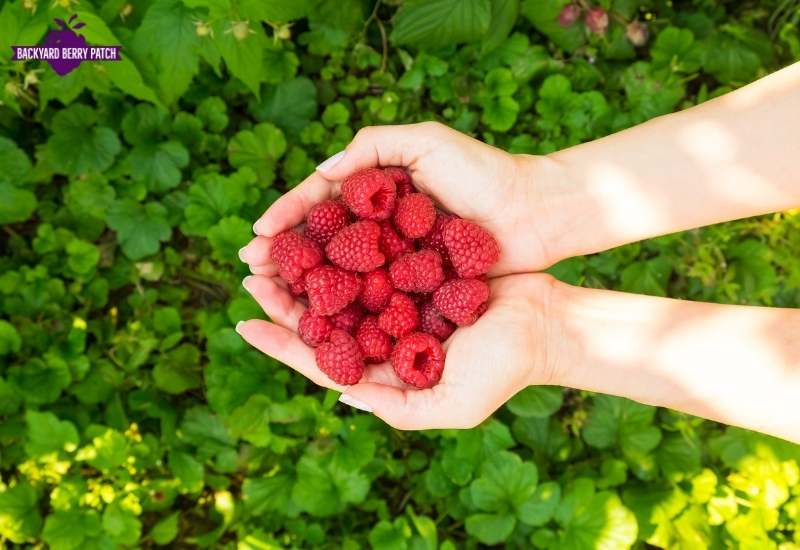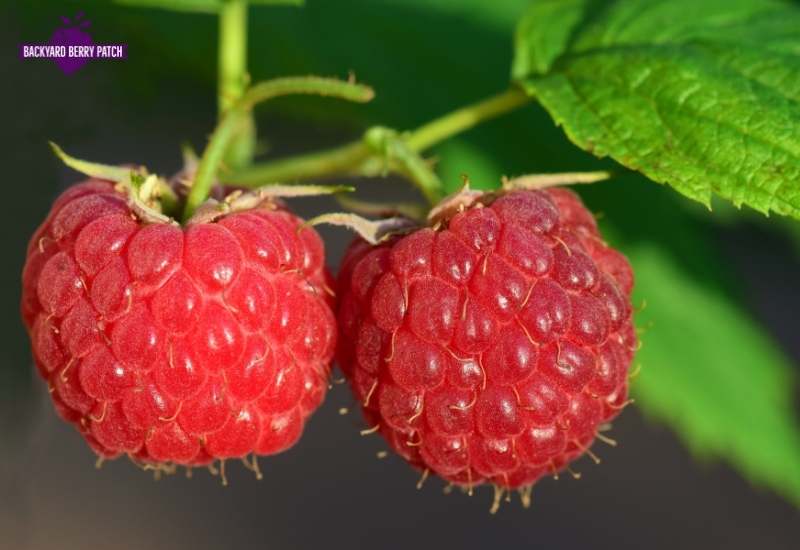Growing raspberries in Michigan can be a fun and rewarding experience. These tasty fruits are packed with vitamins, antioxidants, and dietary fiber. They’re also easy to grow and self-fertile, making them a great choice for your garden.
Michigan’s climate is perfect for many raspberry varieties. The best raspberry varieties for Michigan gardens include Heritage, Latham, Boyne, and Nova. These types are hardy enough to withstand cold winters and produce plenty of sweet berries in summer.
You might be wondering how to get started with growing raspberries. It’s simpler than you might think! With the right soil conditions and care, you can enjoy fresh raspberries from your own backyard.
Let’s explore some of the top varieties and tips for growing these delicious fruits in the Great Lakes State.
Michigan Climate and Soil Overview
Michigan’s climate is perfect for growing raspberries. You’ll enjoy cool winters and warm summers, which these berries love. The state has a growing season that usually starts in May and ends in October.
Soil is key for your raspberry plants. Michigan’s soil is naturally fertile, but you’ll want to make sure it’s just right.
Aim for a soil pH between 5.5 and 6.5. You can test your soil and adjust if needed.
Good drainage is a must for your raspberry patch. If your soil is heavy clay, mix in some organic matter. This could be:
- Compost
- Aged manure
- Leaf mold
These will improve drainage and add nutrients.
Mulching is your friend in raspberry growing. It helps keep moisture in and weeds out. You can use wood chips or straw.
Raspberries also like lots of organic matter. Before planting, work some compost into your soil. This gives your plants a great start with plenty of nutrients.

Recommended Thornless Raspberry Varieties in Michigan
Growing thornless raspberries in Michigan can be a fun and rewarding experience. You’ll enjoy easier harvesting without the prickly thorns getting in your way. Here are some great options to consider for your garden:
‘Heritage’ is a popular thornless variety that does well in Michigan. It’s known for its good flavor and high productivity. You can expect two harvests from this everbearing variety – one in early summer and another in fall.
‘Anne’ is another excellent choice for Michigan gardens. This yellow raspberry produces sweet, flavorful berries. It’s considered one of the best yellow-fruited varieties for the state.
If you’re looking for a compact option, try ‘Raspberry Shortcake’. This dwarf variety is perfect for containers or small spaces. It grows only 2-3 feet tall and doesn’t need a trellis for support.
When planting your thornless raspberries:
- Choose a spot with full sun exposure
- Space plants about 2-3 feet apart in rows
- Water regularly, especially during fruit production
- Fertilize in early spring for best results
Remember to prune your raspberries annually to maintain productivity. For everbearing varieties like ‘Heritage’, you can cut all canes to the ground in late winter for a single fall crop.

Recommended Thorny Raspberry Varieties in Michigan
When growing raspberries in Michigan, you might want to consider some thorny varieties. These plants can be great for your garden and offer tasty fruits.
One popular choice is the Encore variety. It’s known for its large, firm berries with a nice flavor. Encore plants are vigorous and produce lots of suckers.
You should also think about ‘Royalty’. This purple raspberry is a cross between red and black raspberries. It’s hardy and can handle Michigan winters well.
For red raspberries, ‘Boyne’ is a good option. It’s tough and can resist some common diseases. The berries are medium-sized and perfect for fresh eating or making jam.
Black raspberries like ‘Jewel’ can do well too. They have a unique flavor and are great for pies or other desserts.
Remember to prune your thorny raspberries regularly. This helps with air circulation and can prevent some pests and diseases.
Watch out for common issues like aphids and spider mites. You can use insecticidal soap or neem oil to keep these pests under control.
Thorny varieties might need extra care when harvesting, but many gardeners find the fruit worth the effort.
